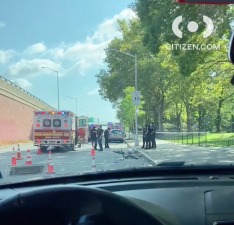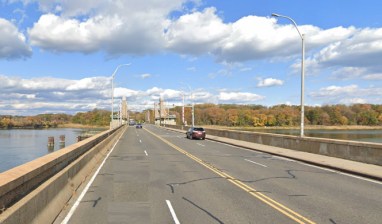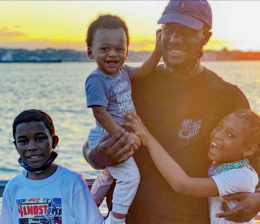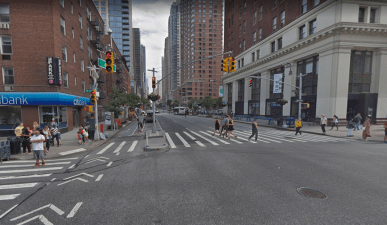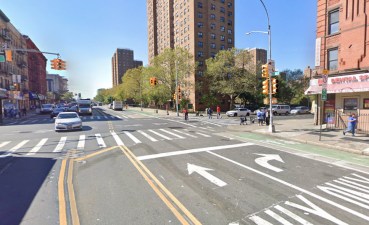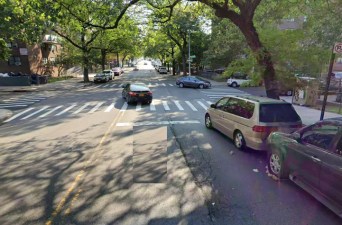Cyclist Critically Wounded by Driver in 2016 Has Died of His Injuries
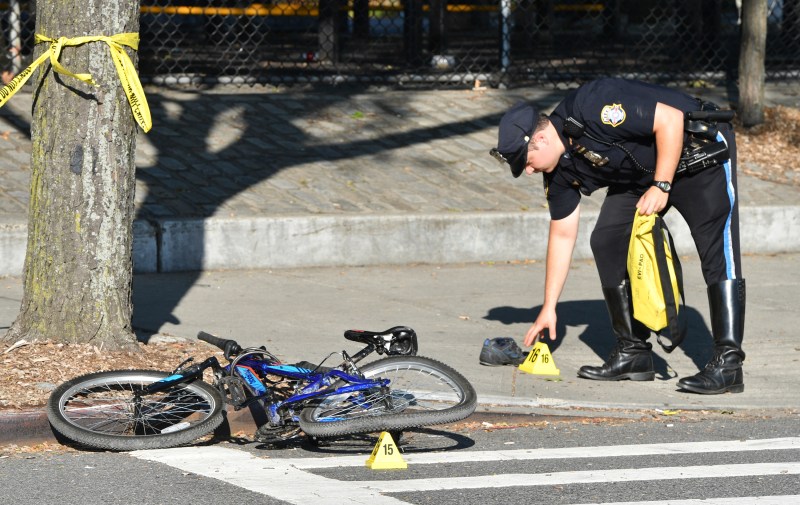
A Borough Park boy who was struck by a driver on his way to synagogue nearly three years ago has died of his injuries, Streetsblog has learned.
Moshe Yehuda Wolpin was hit at the corner of Dahill and Cortelyou roads on Sept. 14, 2016 — and spent every day since shuttling in and out of hospitals and clinics, yet never recovered. His death on July 1, 2019, is a reminder that for every cyclist fatality that makes the news — and there were three in a single week from June 24-July 1 — hundreds of New Yorkers are seriously injured by drivers and suffer for weeks, months or, as in Moshe’s case, years.
“He was transferred to various facilities over the past three years until he was Niftar on Monday evening,” Boro Park 24 reported, using the Hebrew word for died.
Several other outlets had covered the crash, and Moshe’s death will be counted in the city’s 2016 fatality figures, bringing the death count of cyclists to 19 that year. Fifteen cyclists have been killed so far this year, prompting the mayor to finally announce his intention of unveiling new enforcement and road safety regimes from the NYPD and Department of Transportation.

The Lexus driver in Moshe’s case was never charged with causing the boy’s injuries, whose severity suggest a motorist at high speeds. The post-crash photo of Moshe’s helmet does so as well.
Amy Cohen of Families for Safe Streets, who lost her own son, Sammy, to road violence, called Moshe’s death especially “heart-wrenching.”
“There is so much suffering from this epidemic,” she said. “The years of heartache after a loss, after injuries which lead to a lifetime of suffering or a life cut short. It is unimaginable that traffic violence is not recognized for the preventable crisis that it is. Our leaders need to declare that we have a state of emergency and put in place every proven solution.”
Mary Beth Kelly, who was biking home from dinner with her husband, Carl Henry Nacht, when he was run over and killed by a tow truck on the Hudson River Greenway, said that the 4,000 serious injuries sustained on New York City streets every year are simply “life altering.”
“But never did two words contain in them such unspeakable loss,” she added. “Consider severe acute and chronic pain, multiple surgeries, brain injury, spinal cord severing, and amputations. Many can never do meaningful work again, play a sport, parent a child, attend school, ride a bike.”
Victims of extreme injuries that require intense medical intervention show “perseverance and resolve” that are simply unfathomable, she added.
“Theirs is the on-going daily struggle to carry on despite what chronic suffering, what loss of functioning and more medical interventions they must endure, and endure,” Kelly added.
“My husband’s death shook my family to its core, and in many ways will always demarcate the before and the after in our lives. But I find my heart seizing up when I read about a boy like Moshe Yehuda Wolpin for whom there was never a pause, never a reprieve from suffering except in death. There was no reprieve for his family either, and now, for them the suffering of loosing him begins. How shameful. How devastating. Let us be judged by how we respond to this insidious crisis in our midst.”
Moshe’s death is the second in as many months of a cyclist who succumbed to injuries well after the initial crash.
On June 4, Citi Bike rider Victor Ang died of wounds he suffered in a crash on the West Side of Manhattan a month and a half earlier. After being hit by a truck driver, Ang had been taken to Bellevue Hospital with injuries that were not believed to be life-threatening.
But initial police reports are often wrong.
